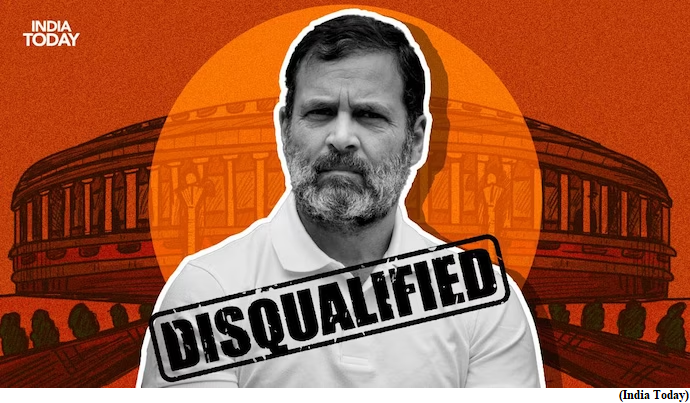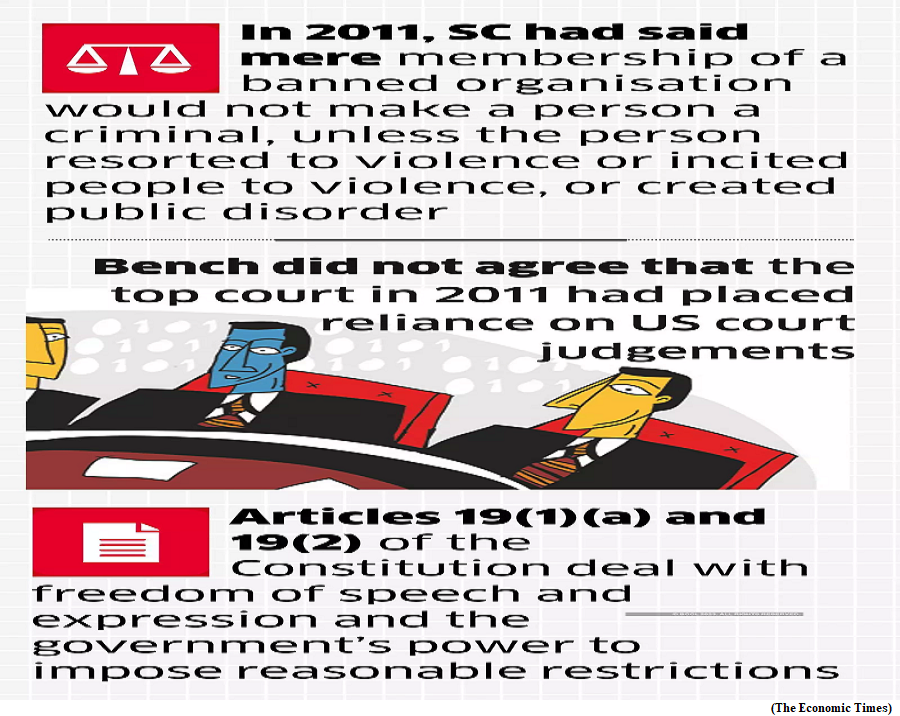Abel Prize 2023 (Miscellaneous)

Why in news?
- Recently, Luis Caffarelli has won the 2023 Abel Prize “for his seminal contributions to regularity theory for nonlinear partial differential equations including free-boundary problems and the Monge-Ampère equation”.
About Abel prize:
- First awarded in 2003, the Abel prize “recognises pioneering scientific achievements in mathematics”.
- It is named after Norwegian mathematician Niels Henrik Abel (1802-29), who in his short life made pioneering contributions in a multitude of fields.
- It is often considered to be an equivalent of the Nobel prize – which does not have a category for mathematics and has been modelled as such.
- The prize includes a monetary award of 7.5 million kroner (roughly $ 720,000) and a glass plaque designed by Norwegian artist Henrik Haugan.
- It is awarded by The Norwegian Academy of Science and Letters, on behalf of the Ministry of Education.
Who was Niels Henrick Abel?
- Niels Henrik Abel (1802-1829) was a Norwegian mathematician who left a big impact on a number of fields in his rather short life.
- His most famous single result is the first complete proof demonstrating the impossibility of solving the general quintic equation in radicals. This question was one of the outstanding open problems of his day, and had been unresolved for over 250 years.
Who is Luis Caffarelli and why did he win the Abel prize?
- Caffarelli was born and raised in Buenos Aires, Argentina, making him the first Abel laureate from South America. Currently, he is a professor at the University of Texas, Austin.
- He has been one of the leading figures in the study of partial differential equations for over five decades.
- Partial differential equations arise naturally as laws of nature, whether to describe the flow of water or the growth of populations. These equations have been a constant source of intense study since the days of Newton and Leibniz.
- He has been recognised for “combining brilliant geometric insight with ingenious analytical tools and methods” in this field of mathematics.
ICMR releases ethical guidelines for AI usage in healthcare
(GS Paper 2, Health)
Why in news?
- Recently, the Indian Council of Medical Research (ICMR) has released the India’s first ‘Ethical Guidelines for Application of Artificial Intelligence in Biomedical Research and Healthcare’.
- It aimed at creating “an ethics framework which can assist in the development, deployment, and adoption of AI-based solutions” in the fields specified.
- Through this, they hope to make “AI-assisted platforms available for the benefit of largest section of common people with safety and highest precision possible,” while also addressing emerging ethical challenges when it comes to Artificial Intelligence in biomedical research and healthcare delivery.

Details:
- The document, prepared by the Department of Health Research and the ICMR Artificial Intelligence Cell, Delhi, will be updated as and when the need arises.
- Developed through extensive discussions with experts and ethicists, the guidelines include sections on ethical principles, guiding principles for stakeholders, an ethics review process, governance of AI usage, and informed consent.
Key Highlights:
- Development, as well as deployment of AI-based solutions in healthcare, span a number of issues, including those related to data safety, data sharing, and data privacy.
- The document says that as AI technologies are further developed and applied in clinical decision making, it is important to have processes that discuss accountability in case of errors.
- As per the guidelines, the ethical review process for AI in health comes under the domain of the ethics committee.
- It notes that the regulation of AI technologies in healthcare is still in its nascent stage even in developed countries.
Background:
- India already offers streamlining of AI technologies in various sectors including healthcare through the National Health Policy (2017), National Digital Health Blueprint (NDHB 2019), and Digital Information Security in Healthcare Act (2018) proposed by the Health Ministry which will pave the way for the establishment of the National Data Health Authority and other health information exchanges.
Disqualification of Rahul Gandhi
(GS Paper 2, Polity and Governance)
Why in news?
- Recently, Wayanad MP Rahul Gandhi’s membership of Parliament has been cancelled following his conviction and sentencing by a local court in Surat.
- A notification issued by the Lok Sabha Secretariat said Rahul “stands disqualified from the membership of Lok Sabha from the date of his conviction i.e. 23 March, 2023 in terms of the provisions of Article 102(1)(e) of the Constitution of India read with Section 8 of the Representation of the People Act, 1951”.

Why has the Lok Sabha Secretariat issued this notification?
- It is part of the procedure. In a note on October 13, 2015, the Election Commission of India had asked state chief secretaries to issue appropriate instructions to the department dealing with prosecutions to ensure that cases of conviction of sitting MPs or MLAs were brought to the notice of the Speaker or Chairman of the House, and to the Chief Electoral Officer of the state, along with the order of conviction within seven days of the order.
- Section 8(3) of the Representation of the People Act, 1951 states that “a person convicted of any offence and sentenced to imprisonment for not less than two years shall be disqualified from the date of such conviction and shall continue to be disqualified for a further period of six years since his release.”
- Thus, the disqualification is triggered by the conviction itself, and not by the Lok Sabha notification. The notification is merely a formal notice to Rahul, who was in Lok Sabha on Friday before the House was adjourned.
- In the case of a disqualified MLA, the notice is issued by the Vidhan Sabha concerned.
- For example, in the case of Samajwadi Party MLA Azam Khan, the Uttar Pradesh Legislative Assembly Secretariat issued the notice of disqualification in October 2022.
Is the authority of the Speaker final in this regard?
- The Supreme Court in its ruling in Lok Prahari v Union of India (2018) clarified that a disqualification triggered by a conviction will be reversed if the conviction is stayed by a court.
- Once the conviction has been stayed during the pendency of an appeal, the disqualification which operates as a consequence of the conviction cannot take or remain in effect.
- The notification by the House Secretariat regarding Rahul will cease to be in effect if and when his conviction is stayed.
What are Article 102(1)(e) of the Constitution and Section 8 of the RP Act?
- Article 102 of the Constitution deals with grounds for disqualification of a parliamentarian.
- Sub-clause (e) of Article 102(1) says an MP will lose his membership of the House “if he is so disqualified by or under any law made by Parliament”. The law in this case is the RP Act.
- Section 8 of the RP Act deals with disqualification of a lawmaker for conviction in certain offences. The provision is aimed at “preventing criminalisation of politics and keeping ‘tainted’ lawmakers from contesting elections.
What options are available to Rahul Gandhi here onward?
- His disqualification can be reversed if a higher court grants a stay on the conviction or decides the appeal in his favour. His first appeal would have to be before the Surat Sessions Court, and then before the Gujarat High Court.
- If he does not get relief from the courts, he will be disqualified from contesting elections for eight years; two years of his sentence, plus six years under the provisions of the RP Act.
- His lawyer Kirit Panwala moved an application before the Surat court seeking time to file an appeal.
Membership of banned outfit is crime under UAPA, says SC
(GS Paper 2, Judiciary)
Why in news?
- Recently, a three-judge Bench of the Supreme Court clarified that a person who “is or continues to be” even a “mere member” of a banned organisation is liable to be found criminally liable under the Unlawful Activities (Prevention) Act (UAPA) for acting against the sovereignty and integrity of India.

Details:
- With this judgment, the Supreme Court has set aside a series of its own judgments which had concluded that “mere membership” unlike “active membership” of an unlawful association or organisation did not make a person criminal or a terrorist.
- The judgment was based on an intra-court reference made in 2014.
Highlights of the judgement:
- The Bench led by Justice M.R. Shah reasoned that an organisation is declared unlawful and banned only after the Centre is “satisfied that it is indulging in unlawful activities against the sovereignty and integrity of India”.
- The declaration of an organisation or association as unlawful is publicly notified by the Centre under Section 3 of the UAPA. This naturally leads to the conclusion that every member of the organisation would know about the ban.
- But a person choosing to continue as a member despite knowing about the ban is acting against the sovereignty of the nation.
- Such a person cannot later claim that the law has a chilling effect on his fundamental right of association by imposing criminal liability on him.
- The court referred to Article 19(4), which mandated that the citizens’ right to form unions or associations was subject to the power of the state to make laws to impose “reasonable restrictions” in the interests of the sovereignty and integrity of India or public order or morality.
Section 10(a)(i) of the UAPA:
- The judgment referred to Section 10(a)(i) of the UAPA which deals with membership of an unlawful association.
- The provision says that “where an association is declared unlawful by a notification issued under Section 3 which has become effective under sub-section (3) of that section, (a) a person, who, (i) is and continues to be a member of such association shall be punishable with imprisonment for a term which may extend to two years, and shall also be liable to fine”.
- The court clarified that persons who had left the organisation and were not members at the time it was declared unlawful, cannot be held liable under Section 10(a)(i) of the UAPA.
Background:
- The three-judge Bench said the earlier judgments in the cases of Arup Bhuyan, Sri Indra Das and Raneef, which had “read down” Section 10(a)(i) to exclude mere membership of an organisation from criminal liability, followed the American law blindly.
- These judgments had not heeded the restraints stitched into Article 19(4) on the right of citizens to form associations.
- Just following the American law without noticing differences between Indian and U.S. laws is not agreeable.





